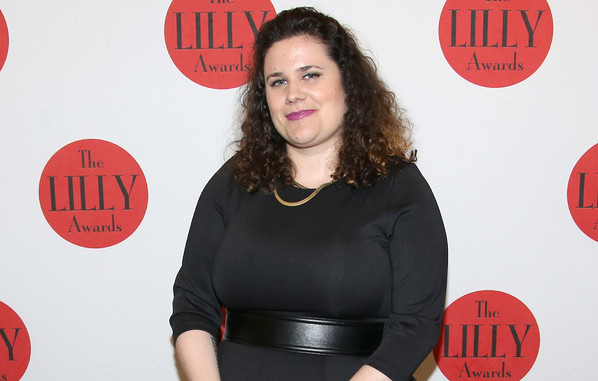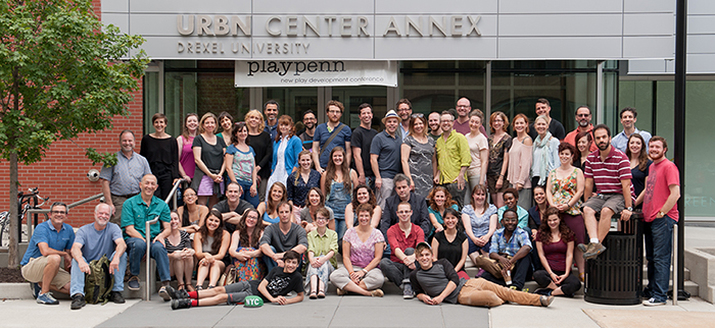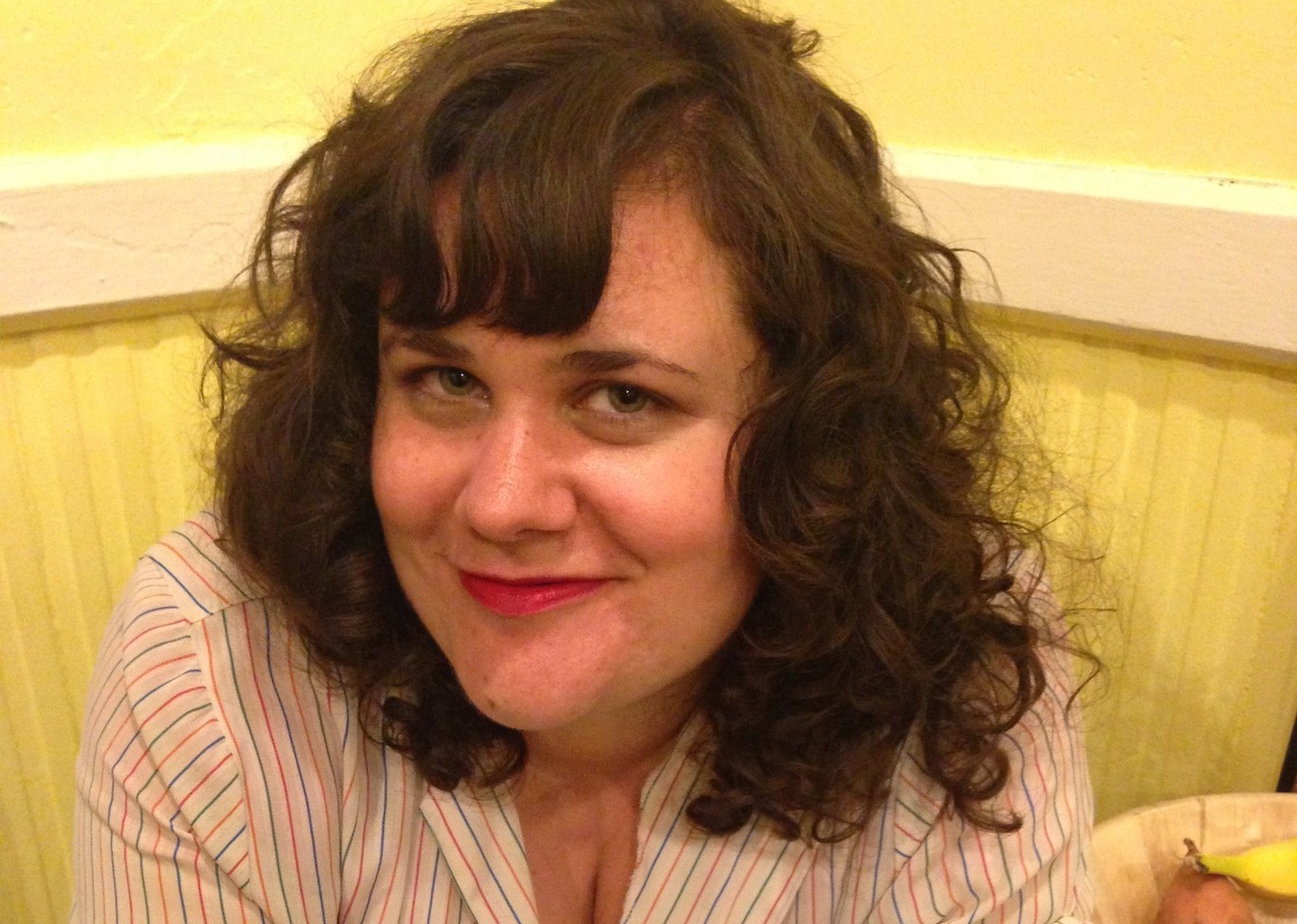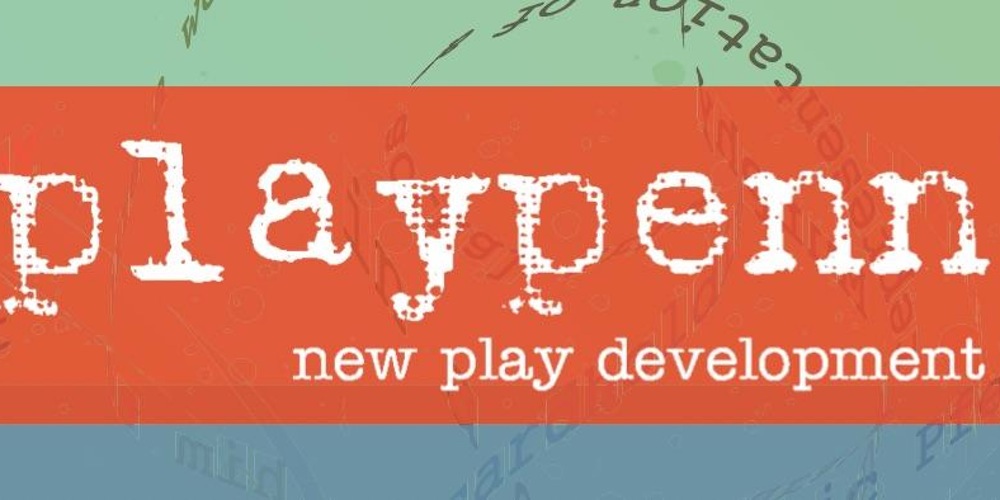PlayPenn is an artist-driven organization, dedicated to improving the way in which new plays are developed. Their most prominent public event is a three-week conference each July in Philadelphia where they develop eight brand new plays by playwrights who are on the forefront of American theater. Each play receives two readings that are free and open to the public. To celebrate this year’s conference, Phindie is running six interviews with prestigious playwrights who have benefited from their experiences with PlayPenn.
Genne Murphy’s plays include GIANTESS, HOPE STREET AND OTHER LONELY PLACES, OUTSIDE THE WIRE, SEA WITCH, and THE SKINNY KILLER INSIDE: A FAT RAGE PLAY. Her work has been produced and/or developed at Azuka Theatre, PlayPenn Conference, Great Plains Theater Conference, Philly Fringe, San Francisco PlayGround, Yale School of Drama, Theater Masters, and Primary Stages/New York Stage and Film through the Leah Ryan’s Fund. Genne is the winner of the 2016 Leah Ryan prize and was on the shortlist for the 2013 BBC International Radio Play Competition. Member: Philadelphia Young Playwrights’ Alumni Council. Currently she is pursuing her MFA in Playwriting at Yale School of Drama. July 5-24, 2016; playpenn.org.

Incubation
Henrik Eger: How did you come up with the concept for your play, GIANTESS?
Genne Murphy: The initial concept of GIANTESS came to me in a dream: I struggled to pour liquid into a tiny glass, and all of a sudden realized I was a giant. The sense of dysphoria was overwhelming, and I panicked and woke up. The memory of it stuck with me. I researched recent and historical images of giants in film and literary contexts. Then I began to examine deeper metaphors about bodies, size, identities, otherness, exotification, etc.
The play’s inherent themes are ones that are personal and important to me in my real life. I think a lot about the intersections of size, race, gender, history, and place—and how these factors impact our bodies, relationships, and lived experiences. I think about the dissonance and connection of human experience, particularly between those who are navigating different forms of hurt or oppression. I mused on all of these ideas for a couple of years before sitting down to write the play. Once I did, the first draft came very quickly.
Eger: Describe the stages that your script went through, from your very first draft to the version that you submitted to PlayPenn.
Murphy: I submitted an early draft to PlayPenn and am happy they saw potential in the play.
Eger: If you have taken other play development workshops, what made them different from your PlayPenn experience?
Murphy: My previous production experiences have allowed me opportunities to revise while in rehearsal, and I’ve worked with some great collaborators. A notable revision experience was the production of my first full-length play (Hope Street and Other Lonely Places, Azuka Theatre, 2012). I learned so much as a writer.
PlayPenn was my first opportunity to participate in a play development conference. One huge benefit to developing a new play in this context: It’s not quite as high-pressure, high-risk as preparing a play for full production. This process still requires a huge level of effort and investment, but also provides a certain freedom to experiment. The conference invites artists and audiences to view this as a snapshot in time of the play—not the end product. The public readings were not necessarily about presenting a polished, finished version of GIANTESS to an audience, but to give me, and my artistic team, more information about what works in the text, and what does not.

Collaborative Process
Eger: Many theatergoers seem to know little about the important work of dramaturgs. Could you describe the input on your work by your dramaturg, Maura Krause?
Murphy: Maura was a wonderful collaborator. Dramaturgs do lots of important things. They help develop new work, run theatre literary departments, research, and contextualize plays for artistic collaborators and audiences. I love the connection between the playwright and dramaturg during a rehearsal process. Maura helped me to think through the play, and often had very incisive observations about characters, themes, and the deeper intent of the work. She could help break down a scene—what felt interesting, rang true, or didn’t ring true. Her intelligent feedback was essential.
Eger: What impact did Shelley Butler, your PlayPenn director, have on the way you rewrote parts of your script?
Murphy: I did not know Shelley before PlayPenn, but Paul Meshejian [artistic director of PlayPenn] thought she would be a good match and arranged for us to have a phone conversation. We hit it off, and I immediately felt her instincts about the play were spot on. Once we started working together in rehearsal, I felt, more and more, as if I’d hit the director jackpot! She is smart, focused, creative, and an excellent leader. In her hands, we had a productive, collaborative rehearsal room. She is also completely relentless—in a good way. She always had a new question or insight that pushed me to work harder on the play. I don’t know if I would have made as much progress on this draft without her encouragement and support.
Eger: Tell us about your work with the actors—Megan Slater, Merri Rashoyan, Nancy Boykin, and Aubie Merrylees—especially anything they said that might have helped you in reshaping parts of your play or perhaps rephrasing something.
Murphy: Megan and Merri created a beautiful dynamic as the two young leads. They brought a palpable sense of intimacy to their characters’ connection, and it helped me develop their relationship. Nancy gave much insightful feedback about her 80-year-old character’s possible perspectives on aging, love, regret, and how she might empathize with the younger female characters. Aubie brought a depth to his role that enabled me to flesh out his character in a more interesting way. They were all great at bringing out both 33the humor and drama in the text. I loved our cast!
Eger: PlayPenn had invited a large range of theater artists, including stage designers.
Murphy: During pre-conference, we had three days of round-table readings of all the plays. This was an excellent opportunity to get to know the other artistic teams and plays. It made it easy to share feedback throughout the conference. The entire PlayPenn community was very supportive, intelligent, and so talented.
During mid-conference, Shelly, Maura, and I had a meeting with Paul [Meshejian], Michele [Volansky], and several of our talented designers. I was very much looking forward to their thoughts as GIANTESS offers potential design challenges—for example: how to stage a 30 foot tall character. Each of the designers discussed evocative images and themes from the play, possible staging and tech approaches, and gave me a sense of the questions designers or producers might ask moving forward. Their feedback helped me to rethink and refine my use of imagery in key scenes.
During post-conference, the core structure and characters remain, but I have made strides to hone in on the dramatic action in each scene and deepen the characters’ motivations. I think I have made the characters’ relationships and decisions more believable.
Eger: Among playwrights in North America, both Paul Meshejian and Michele Volansky are legendary for nurturing new plays. Could you give examples of how their work shaped part of your script?
Murphy: Both Paul and Michele were incredibly supportive throughout the conference and after each reading. Michele had some specific insights into how to maintain dramatic momentum in Act 2, and also counseled me to not shy away from the themes I wanted to explore, even when I felt unsure about my approach.
Eger: One of the PlayPenn goals is to “provide as many resources and remove as many obstacles as possible.”
Murphy: PlayPenn did an incredible job of nurturing my work before and during the conference. They flew me out for casting so I could have a voice in that process, brought together an excellent creative team for GIANTESS, and provided ample opportunities for participating artists to connect at the conference. We were well fed, both literally and artistically. I felt embraced by the community [in Philadelphia], and this made it easier to work and write.
Eger: Could you tell us a bit about your experience with Jillian Schwab, your intern?
Murphy: Jilly was an energetic and hard-working addition to our team. I appreciated her contributions and insights in the rehearsal room as well as her presence during the readings—she voiced stage directions. I come from an arts education background, so I appreciate sharing space with young artists.
Eger: Each of your plays was given two public readings with professional actors. How much did that process shape your play?
Murphy: One major thing we noticed after the first reading—the play moves quickly. Shelley, Maura, and I realized we could remove the planned intermission. We did so for the second reading, and it made a huge difference, not just in the pacing, but also in keeping the audience grounded in the world(s) of the play.
Eger: Overall, how would you describe the PlayPenn process and its impact on your play? What were some of the best insights you gained from the PlayPenn team?
Murphy: PlayPenn provided the space, means, and opportunity to make GIANTESS a stronger play. I wrote this from a very intuitive place, but my team allowed me to look at the play in new ways, and with strategic, analytical perspectives. There are too many insights gained for me to list here. I have a whole notebook of detailed notes and feedback. I will say that I am happy with our progress and have a blueprint for future revision work.

Playwrights Under Pressure
Eger: What do you think your play or your main characters would say about being looked over and reviewed extensively by theater experts?
Murphy: I think the characters in GIANTESS would dislike being observed and dissected in their moments of vulnerability—as most humans would. The two leads, Dee and Valentine, are teenagers on the cusp of adulthood, both dealing with great responsibility and tough family situations. Their connection to one another is at times sweet and natural, and at other times awkward, disorienting, and uncomfortable. My hope is that reviewers will respond not only to the metaphors and themes in the play, but to these characters as people: three-dimensional, messy, contending with complicated emotions and real life issues.
Eger: As a PlayPenn playwright, how has your participation in this intensive workshop series changed the way you might handle challenging situations differently in the future?
Murphy: I greatly benefited from meeting the other playwrights and learning more about the theater industry through their eyes. I gleaned perspective about the literary processes of other development opportunities and received tips on how and where to submit my work. My peers also reiterated that rejection does not necessarily define the future life of a play. Importantly, I saw how normal and perfectly okay it is for writers to experience a whole range of emotion during rehearsal and revision: excitement, fear, doubt.
All’s Well that Playwrights Well: Beyond PlayPenn
Eger: How close do you consider your play to be production-ready? And what are the next steps you have taken to get it produced?
Murphy: I think my play is closer to being production-ready, but I would benefit from a few more chances to revise and showcase the work before my peers—perhaps future festivals or conferences. Thankfully, through PlayPenn, I’ve met a host of talented artists who will likely give me good advice about next steps.
Eger: Where do you see yourself now in this process of becoming an even stronger playwright than before?
Murphy: I am still very early in my writing career, but I think I am on the cusp of significant growth as a writer. I’m also about to start grad school. I am gaining confidence in my storytelling ability and hope to better master dramatic action and structure.
Eger: What have you discovered about yourself through the PlayPenn process—not only as a playwright, but as a mensch?
Murphy: One of the reasons why I love theater is that—in its best form—it allows artists and audiences to be engaged in ideas together. It is an ideal forum for social change and community dialogue. It does not always work out this way, but when it does, it feels great. I always learn a lot about myself and other people when working on a play, and I find myself impacted greatly by the passion and work ethic of my collaborators.
I love the moments when I can forget that I am working on my own play and just be present with the artists in the room or the audience around me. Those moments remind me to approach theater, and my life, with a sense of focus, collaboration, accountability, and empathy—make it less about me, and more about the work, the ideas, the journey, and relationships with other people.
Eger: What advice do you have for the next generation of playwrights?
Murphy: For me, it’s been important to strike a balance between being an intuitive, passionate writer and one who is thoughtful and analytical. I think it is important for young writers to remember that a play—or any writing, really—has the potential to evolve in ways you may not fully understand when you first start writing. Your play might not quite work in its first iteration, or even its second or third or beyond—and that is okay. There may be scenes or lines or characters you love, but that do not serve your play.
Readers or audiences may respond in unique ways you do not foresee. Try to separate your ego from the work. Do not be afraid to cut and change and shift things around as you can always go back to an earlier draft if you don’t like a revision. Do not be afraid to experiment and even fail in service of the greater mission—making the best work you can. Also, don’t feel the need to paint yourself into a box or “type” of writer. Who knows what you will learn or how you will develop over time?
Eger: Thank you, Genne. May your GIANTESS grow by leaps and bounds and open creative perspectives for new audiences.
For more information on this year’s PlayPenn conference, July 5-24, 2016, visit playpenn.org.
Read a three-part Phindie interview with PlayPenn founder and artistic director, Paul Meshejian:
- PlayPenn, Theater, and “A comfortable place for misfits”: Interview with founder Paul Meshejian, Part 1
- Everything you always wanted to know about PlayPenn, but were afraid to ask: Interview with founder Paul Meshejian, Part 2
- How to Get Accepted into PlayPenn: Interview with founder Paul Meshejian, Part 3

